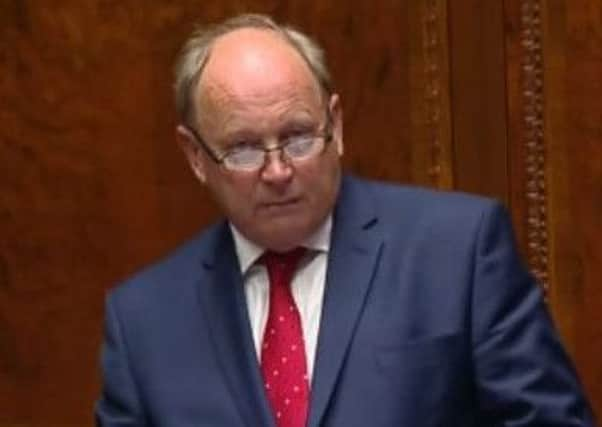RHI Inquiry '˜highlights DUP opposition to kerbs on Spads'


TUV leader Jim Allister said that evidence to the inquiry showed that, at the point where his private member’s bill was defeated, the RHI scheme was running out of control, with allegations that DUP special advisors (Spads) were working to delay cost controls and in one instance passing on confidential documentation about the scheme to a Spad’s family members.
Mr Allister said his bill would have done three things: reduced the number of Spads, restricted the amount they could be paid and brought them under civil service disciplinary procedures.
Advertisement
Hide AdAdvertisement
Hide AdBut he recalled that it was voted down by both the DUP and Sinn Fein, adding: “At the time the DUP were engaged in a token boycott of Assembly business following an IRA murder, missing business such as a debate on cancer, but broke that boycott to join Sinn Fein to vote down the bill – at the very time we now know DUP Spads were delaying cost controls in RHI.”
Some 85 MLAs voted on the Civil Service (Special Advisor) (Amendment) Bill in October 2015, with 33 in favour and 52 against.
Mr Allister told the Assembly the debate had “underscored” the DUP’s desire to “protect their own vested interest”.
The ongoing inquiry into the RHI scandal has heard evidence that at least one DUP Spad had a role in delaying cost controls.
Advertisement
Hide AdAdvertisement
Hide AdThe scheme spiralled out of control and resulted in a huge overspend.
During the debate on the second stage of the bill, Mr Allister argued that Spads “cannot expect to gain from all the benefits that come from being a civil servant, such as the pension scheme and all that, but dodge and evade the disciplinary possibilities that come as to their conduct”.
The proposed legislation would have made it clear that the normal disciplinary processes of the civil service would apply to Spads and would “expressly prohibit any ministerial meddling” in that, Mr Allister continued.